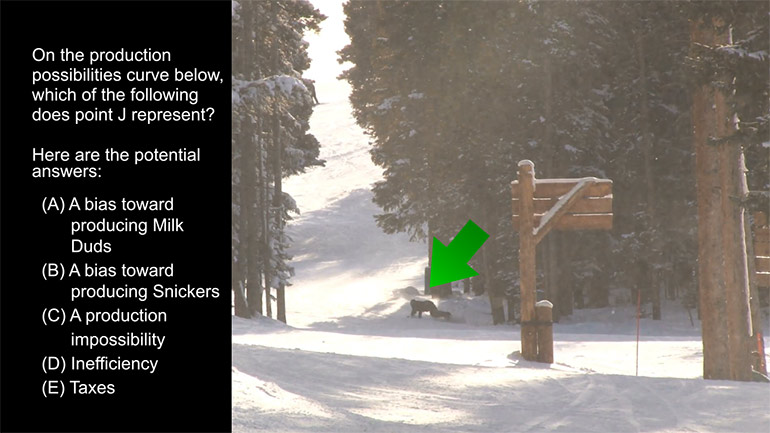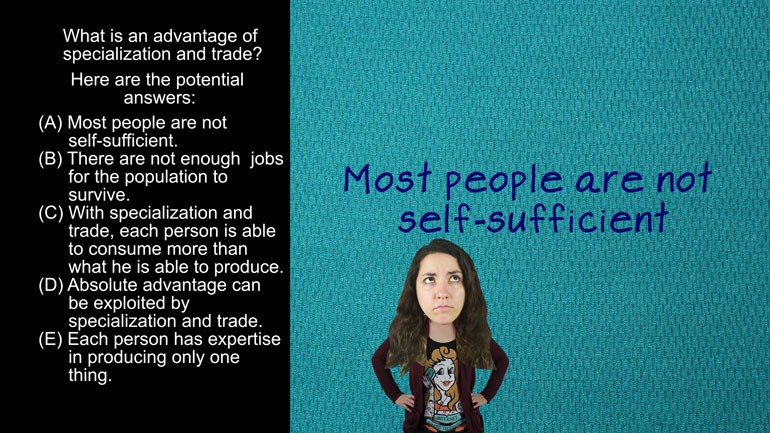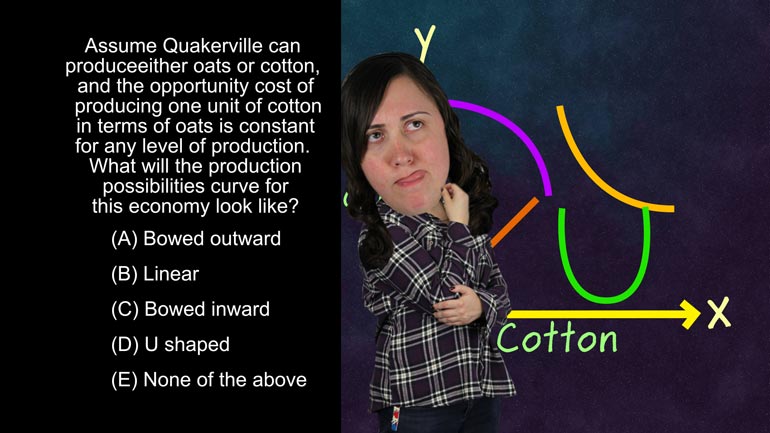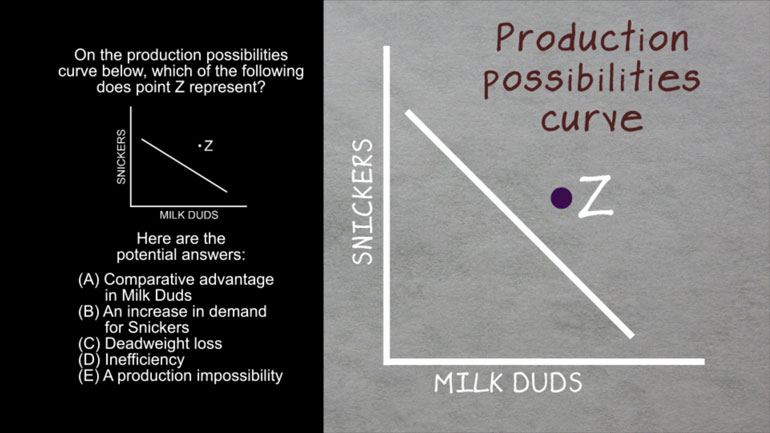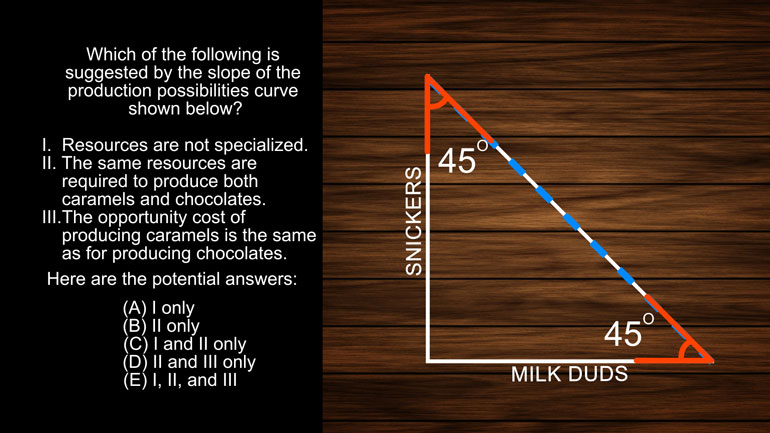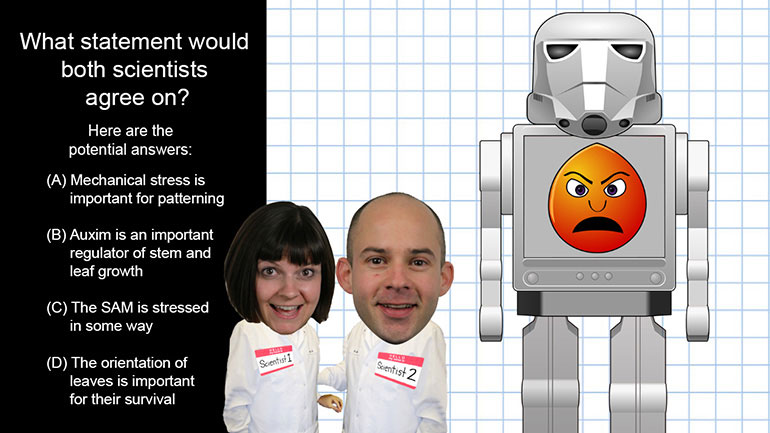ShmoopTube
Where Monty Python meets your 10th grade teacher.
Search Thousands of Shmoop Videos
Basic Economic Concepts Videos 7 videos
AP Microeconomics 1.6 Basic Economic Concepts Review Drill. What does this point on the production possibilities curve represent?
AP Microeconomics 1.12 Basic Economic Concepts. What is an advantage of specialization and trade?
AP Microeconomics 1.8 Basic Economic Concepts. What among the following may not be your opportunity cost?
AP Microeconomics 1.4 Basic Economic Concepts 15 Views
Share It!
Description:
AP Microeconomics 1.4 Basic Economic Concepts. Which of the following is suggested by the slope of the production possibilities curve below?
Transcript
- 00:00
Thank you We sneak And here's your shmoop du jour
- 00:05
Brought to you by theater candy which is way more
- 00:08
popular than popcorn Okay so that's probably alive But there
- 00:11
may be a kernel of truth in there All right
- 00:14
which of the following is suggested by the slope of
Full Transcript
- 00:16
the production possibilities Curve shown below We got some romans
- 00:20
here Alright Resource not specialized Same shorts were required to
- 00:23
produce both caramels chocolates and three opportunity cost of producing
- 00:27
terminals The same His producing iraklis Alright Potential answers All
- 00:30
right Bunch of roman numerals We got snickers Meth heads
- 00:33
in the line Okay people focus right here Angle forty
- 00:38
five degrees and over here Angle forty five degrees This
- 00:43
equals that everything is the same move left or right
- 00:48
Production possibility allocations remain equal If they're all the same
- 00:52
then re sources are of equal scarcity knots New gets
- 00:56
cocoa beans sugar ground up back For they're all the
- 00:59
same Equal tradeoffs for both the duds and the snickers
- 01:03
So roman numeral one is a yes And that knocks
- 01:06
out b and d roman numeral two almost restates the
- 01:10
definition We just went over for this fine forty five
- 01:13
degree boring triangle without knowing specifically the amount of caramels
- 01:16
and chocolates that go into each candy we can assume
- 01:19
that the ingredients are of equal trade off And if
- 01:22
two is true well kind of points along chocolatey finger
- 01:26
at roman numeral three there is no opportunity cost difference
- 01:30
among either candy If there was the line wouldn't be
- 01:32
a forty five degrees That is if we chose to
- 01:35
produce duds which consumed a ton of sugar for example
- 01:39
so much that we couldn't produce any more snickers then
- 01:42
we'd have to make a resource allocation trade off among
- 01:44
the two choices we have for production but that's not
- 01:47
the case here So the answer is e roman numerals
- 01:50
one two and three and ingredient not found in either
- 01:53
of these candies So yeah enjoy your next knickers bar
- 01:57
Just remember to eat around the bat for contrary to
- 02:00
what your big brother told you ingesting it won't give 00:02:03.068 --> [endTime] you night vision Yeah
Related Videos
AP Microeconomics 1.6 Basic Economic Concepts Review Drill. What does this point on the production possibilities curve represent?
AP Microeconomics 1.12 Basic Economic Concepts. What is an advantage of specialization and trade?
AP Microeconomics 1.8 Basic Economic Concepts. What among the following may not be your opportunity cost?
AP Microeconomics 1.6 Supply and Demand. What will the production possibilities curve for this economy look like?
ACT Science: Conflicting Viewpoint Passage Drill 1, Problem 1. What statement would both scientists agree upon?
